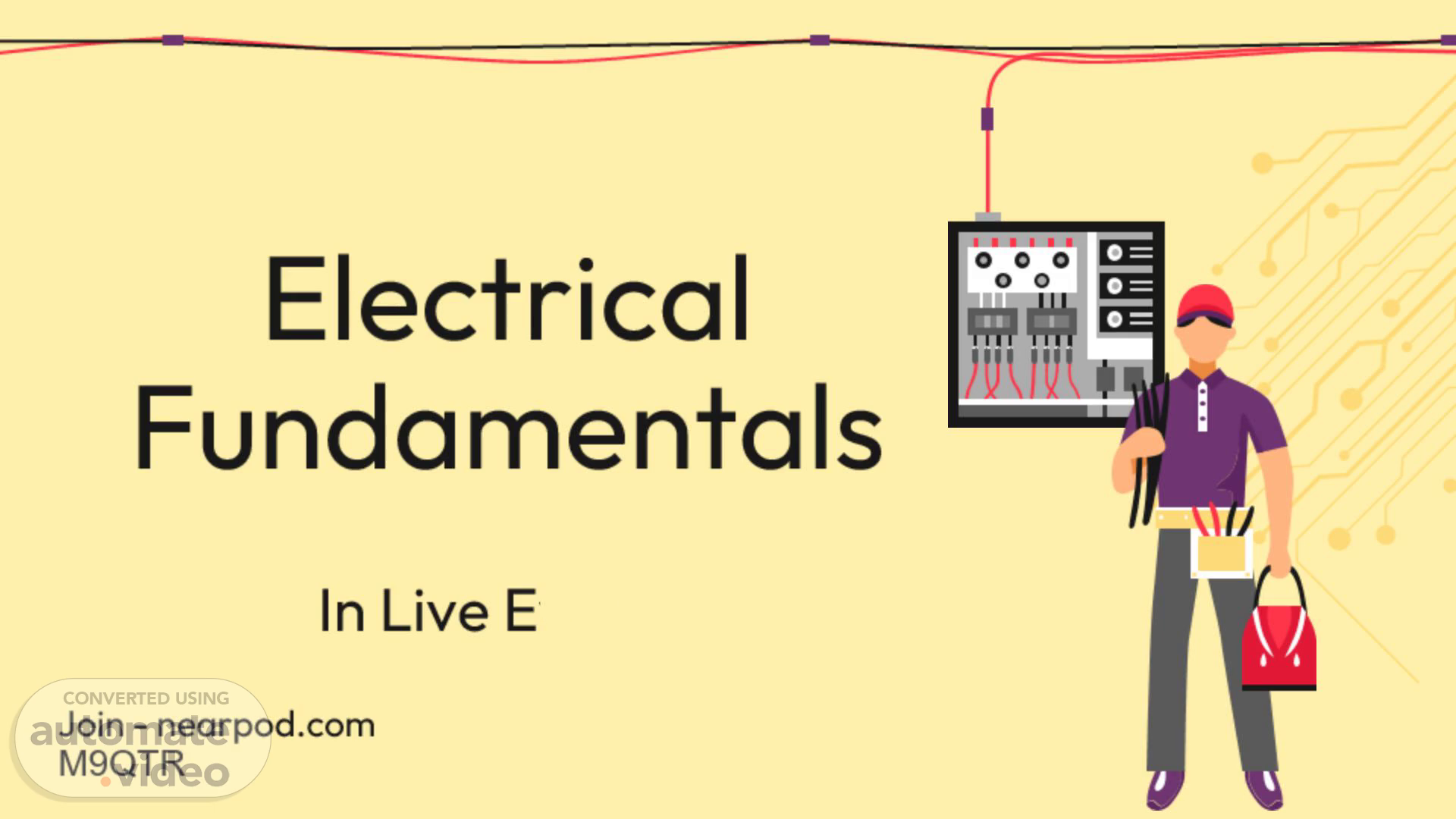Scene 1 (0s)
Electrical Fundamentals. In Live Events. Join - nearpod.com M9QTR.
Scene 2 (8s)
Housekeeping and Conduct. Ensure you log the length of this session in BUD and add a reflective note to the component. Have the ability to take notes throughout the session, no eating and phones away. Always access online sessions on a laptop or computer. Mobile phones are not an acceptable way of accessing an online session..
Scene 3 (25s)
Lesson Content. 01. 04. 02. 03. Electrical Safety.
Scene 4 (35s)
Summarise and determine the risks associated with live electricity. Identify how electricity is generated. introduction to three phase power, alternating and direct current..
Scene 5 (47s)
Electrical Safety. 01.
Scene 6 (54s)
Electrical Systems: Health and Safety. Health and safety in live events is a crucial consideration to safeguard the well-being of both event attendees and the event staff. It entails measures to prevent accidents, injuries, and health hazards throughout the event's planning, setup, and execution. What Constitutes Electrical Hazards? Electrical hazards involves the potential risks associated with electrical equipment, wiring, and power distribution systems during the event's planning, setup, and execution. To ensure the safety of both attendees and staff, it is crucial to assess and mitigate these electrical hazards by using well-maintained equipment, proper wiring practices, and adherence to safety regulations..
Scene 7 (1m 23s)
Electrocution Risk: Electrocution is a serious electrical hazard in live events. It can result from direct contact with electrical sources, faulty equipment, or ground faults. Faulty Wiring: Faulty wiring is a common cause of electrical fires and can be especially hazardous in live event settings. Discuss: Water and Electricity: Water and electricity are a dangerous combination, especially in outdoor events. Overloaded Circuits: Overloaded circuits occur when too many devices are connected to a single electrical circuit. This can lead to overheating, fires, or equipment damage..
Scene 8 (1m 49s)
Too Many Devices Plugged In. High-Wattage Appliances. Daisy Chaining Extension Cords. Faulty Wiring or Connections. Power Spikes or Surges. Incorrect Wiring or Mismatched Voltage..
Scene 9 (2m 4s)
Understand the electrical capacity of circuits and outlets in your venue. Distribute the load evenly across multiple circuits when using multiple devices. Use high-quality extensions. Regularly inspect and maintain all electrical connections and wiring. Be aware of the power requirements of your equipment and ensure they match the circuit's capacity. Implement circuit breakers or fuses..
Scene 10 (2m 24s)
Assess potential electrical hazards. Ensure all electrical installs are carried out by a professional. Ensure that all electrical equipment is suitable for its intended use and the conditions in which it is operated Ensure equipment is regularly inspected and maintained..
Scene 11 (2m 42s)
Electrical Systems: Health and Safety. Grounding and GFCI.
